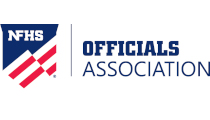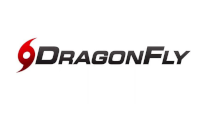Track and Field Officials: What's in Your Bag?
By David Weidemann and Donald Collins on April 22, 2015 officials PrintNew track officials can struggle to figure out what equipment they need. Track and field has a lot of events. Each one has specific equipment needs.
For example, a throwing event judge needs a tape measure for the shot put. That judge will need longer tape for the discus, and will also need steel tape to certify a record. If judges are “pulling tape,” they will also have the practical concern of not suffering a back injury from bending to place the tape all day. So, wise throwing event judges will obtain a measuring cane or a long pole-like device that will allow them to spear tape from a standing position.
A track official in Arizona will pack some sun protection, while an official in Wisconsin might pack hand-warmers and other cold-weather gear. Field event officials will need pencils, pens and a clipboard to run their events. Finally, a track meet can run for the better part of a day, so a wise official brings food and water.
A new official doesn’t have the benefit of years of experience to figure out all of the equipment needs. In addition, the new official might not have a specialty yet. The official might be running throws one day, pulling tape on another day, serving as a starter at a youth event yet another day, and acting as an exchange zone judge on the weekend. Different events require different equipment needs. Umpires, exchange-zone judges, finish-line personnel and all the other officials who work a track meet make use of different equipment. Many host schools supply much of the equipment (flags for umpires, stop watches for timers, clipboards for field events, etc.), but all officials should be prepared for whichever event(s) they work.
New officials can be overwhelmed without some guidance as to what equipment to get for each event and where to get it. A checklist that lists equipment needs can prove to be very useful.
The Northeast Wisconsin Track and Field Officials Association (NEWTFOA), a local track officials association based in Green Bay, Wisconsin, recently offered a clinic on starting mechanics and procedures for all track officials. One of the goals of the clinic was to provide instruction that results in more consistency among officials in that area. Clinic attendees were provided with a list of items that track and field officials should have in their bag. With permission from NEWTFOA, that list is provided below. Please note that some of the items are unique to Wisconsin (striped shirt) and to the climate (disposable hand warmers, etc.). Officials should review the list and make whatever additions, deletions or substitutions that are appropriate for their state and part of the country.
Uniform, etc.
- Black-and-white striped shirt (most prefer one with a pocket)
- Black pants (or shorts)
- Black shoes (polished) and black socks
- Brightly colored arm sleeve
- Closed-barrel starting pistol with holster (.32 caliber and/or .22 caliber)
- Plastic whistle on lanyard (preferably black lanyard)
- Ear protection (ear plugs or muff)
- Flash shield
- Hat (optional). All officials should preferably wear the same-colored hat.
- Black-and-white striped jacket or transparent rain suit for diverse weather conditions
Official’s bag
- Extra shells
- Cleaning rag and WD-40 (or other lubricant) for gun
- Extra whistle
- Fanny pack or other holder for shells, rules books, etc.
- Rules Book, Case Book, Officials Manual, state adaptations
- Clipboard, multi-pocket folder or other device to hold printed materials
- Pens and/or pencils
- 3” x 5” cards
- Roll of athletic tape
- Marking material for shot and discus (markers, white-out, fingernail polish, etc.)
- Balancing ring for shot for weigh-in (milk jug ring works well)
- Tape measure (25’)
- Pliers
- Spike-measuring device
- Two-gallon zip-lock bags for protecting clipboards during rainy weather
- Rain gear
- Gloves (warm and/or waterproof)
- Disposable hand warmers
- Sunscreen
- Plastic garbage bag into which to put official’s bag for protection from rain
- Lap-counting paddles or cards
- Small cones for cut-ins, lane designations, etc.
- Forms, cards, other aids
Clearly, the amount of information for the new track official is overwhelming. Even more overwhelming is the prospect of lugging all of the needed equipment around. If ever a group of officials needed a bag, track officials need one. As to what’s in the bag - well, that boils down to what your state or local association requires, and what extra things work for you.
David Weidemann and Donald Collins
David Weidemann, who earned both his bachelor’s and master’s degrees at the University of Wisconsin-Oshkosh, spent his entire professional career there. Since 1970, Weidemann has been a starter or meet referee at Wisconsin Interscholastic Athletic Association state track meets, and has also been a starter and running referee at UW-Oshkosh and other National Collegiate Athletic Association track meets. Donald Collins, who is an attorney and a former law school instructor, is the commissioner of athletics for the San Francisco Section of the California Interscholastic Federation.
Most Recent Articles
- nfhs news NFHS Learning Center Delivers 25 Millionth Course
- Track & Field/Cross Country article Effective Communication with Athletes and Coaches
- nfhs news Player Equipment Changes Highlight 2025 High School Football Rules Revisions
- Player Equipment Changes Highlight 2025 High School Football Rules Revisions
- nfhs news Judgment Call on Second Contact Eliminated in High School Volleyball






